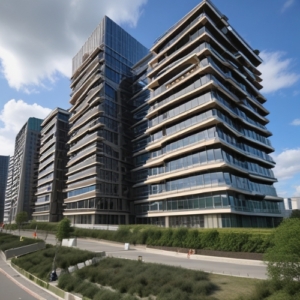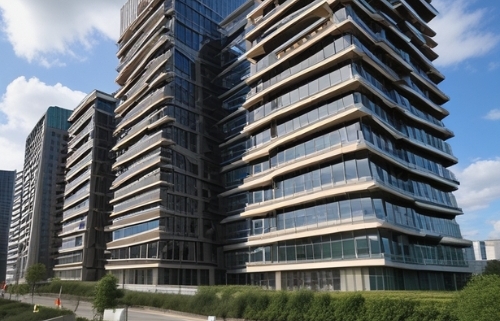Buying a Commercial Property for the First Time

Investing in commercial real estate for the first time can be an exciting yet challenging endeavour. Whether you’re purchasing property for your own business or as an investment opportunity, thorough due diligence is essential to mitigate risks and ensure a successful transaction. Buying a commercial property involves navigating a complex landscape of financial considerations, legal intricacies, and market dynamics.
It begins with defining your investment goals and budget, followed by thorough research into the property’s location, condition, and potential for income generation. Assessing zoning regulations, environmental factors, and tenant profiles is crucial to understanding the property’s viability and future prospects. Engaging with experts such as real estate agents, solicitors, and financial advisors helps mitigate risks and ensures a smooth transaction process.
Here are eleven critical questions to guide you through the process:
1. What is My Budget and Financial Capacity?
Understanding your budget constraints and financial capacity is the first step. Determine how much you can afford to invest, including upfront costs such as down payments, legal fees, surveys, and ongoing expenses like property taxes and maintenance. Consider financing options and consult with financial advisors to assess affordability and funding alternatives.
2. What is the Purpose and Use of the Property?
Define the intended purpose of the property—whether it’s for your own business operations, leasing to tenants, or redevelopment. Clarify zoning requirements and ensure the property’s current use aligns with your goals. Evaluate its potential for future flexibility or expansion to accommodate changing needs.
3. What is the Location Like?
Location is a critical factor that can significantly impact the property’s value and attractiveness to tenants or customers. Assess the property’s proximity to transportation hubs, major roads, amenities, and demographic trends. Consider factors such as local economic stability, future development plans, and neighbourhood reputation.
4. What is the Condition of the Property?
Conduct a thorough inspection or engage a qualified surveyor to assess the property’s physical condition. Identify any structural issues, maintenance needs, or necessary renovations. Evaluate the age and condition of major systems such as HVAC, plumbing, and electrical to estimate potential repair or upgrade costs.
5. What is the Market Demand and Rental Potential?
Research the local commercial real estate market to understand demand dynamics, vacancy rates, and rental income potential. Analyse comparable properties and rental rates in the area to gauge the property’s income-generating potential. Consider factors such as tenant preferences, lease terms, and market trends that could impact rental yields.
6. What are the Zoning and Regulatory Considerations?
Verify zoning regulations and land use restrictions that govern the property. Understand permitted uses, building codes, environmental regulations, and compliance requirements. Consult with local planning authorities or zoning experts to assess any limitations or opportunities for future development or renovations.
7. What are the Financing Options and Costs?
Explore financing options available for commercial properties, including mortgage rates, loan terms, and associated fees. Calculate upfront costs such as stamp duty, legal fees, surveys, and ongoing expenses like property taxes and insurance. Compare different lenders and financing packages to secure the most favourable terms.
8. What are the Environmental and Safety Factors?
Evaluate environmental factors such as contamination risks, pollution controls, and compliance with health and safety regulations. Conduct environmental assessments or surveys to identify potential liabilities or remediation requirements. Ensure the property meets energy efficiency standards and sustainability initiatives to minimize operational costs and attract environmentally conscious tenants.
9. What is the Tenant Profile and Lease Agreements?
If the property is leased, review existing tenant profiles, lease agreements, and rental terms. Assess tenant stability, lease expiration dates, rental escalations, and any outstanding liabilities. Evaluate the potential for lease renewals, tenant turnover, and the impact on cash flow and investment returns.
10. What are the Legal Considerations and Title Issues?
Engage a solicitor specializing in commercial real estate to conduct a thorough legal review. Verify ownership rights, easements, restrictions, and any pending legal issues that could affect property transfer or future development plans. Address legal complexities early to avoid delays or complications during the purchase process.
11. What is the Long-Term Investment Strategy and Exit Plan?
Define your long-term investment objectives and formulate an exit strategy. Consider factors such as potential resale value, market liquidity, and investment diversification. Evaluate the property’s performance against your financial goals and risk tolerance to make informed decisions about acquisition and future disposition.
 Conclusion
Conclusion
Buying a commercial property for the first time requires careful planning, due diligence, and expert guidance. By asking these critical questions and conducting thorough research, you can minimize risks, maximize investment potential, and achieve your financial objectives in the competitive commercial real estate market. Seek advice from experienced professionals, leverage market insights, and stay informed about regulatory changes to navigate the complexities of property acquisition successfully.




